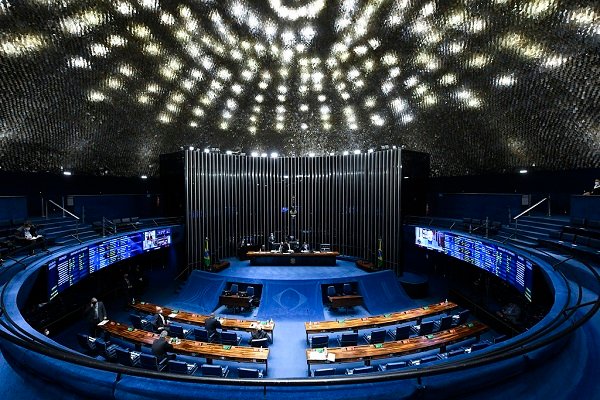This Content Is Only For Subscribers
To unlock this content, subscribe to INTERLIRA Reports.
On Thursday (30/06), the Senate approved in the first round by 72 votes to 1 and in the second round by 67 votes to 1 the Proposal for an Amendment to the Constitution (PEC) that establishes a state of emergency in the country to enable the creation of a series of social measures. Now, the text will be voted by the Federal Deputies. The impact of the proposal on the budget could reach R$ 41,2 billion. As provided for in the approved text, the PEC provides until the end of this year:
- The Auxílio Brasil will be increased from R$ 400 to R$ 600 per month. 1,6 million new families are expected to be added to the program;
- Self-employed truck drivers will receive a R$ 1.000 “voucher”;
- The Auxílio-Gás will be increased from R$ 53 to the value of a cylinder every two months, around R$ 112,60;
- The Federal Government will compensate the states expenses with free transport for the elderly;
- Taxi drivers registered until May 31st, 2022, will receive a benefit;
- The program Alimenta Brasil will transfer R$ 500 million for the purchase of food produced by family farmers and distribution to food insecure families;
- R$ 3,8 billion will be transferred through tax credits to maintain the competitiveness of ethanol over gasoline.
The PEC dos Combustíveis
The proposal approved by the Senate on Thursday (30/06) by the senators is a replacement of the so-called “PEC dos Combustíveis”. Initially, the text provided for compensation to states that had zero ICMS, a state tax, on fuel. All of these measures are mechanisms that have been proposed to control inflation, which was especially propelled by the fuels prices strong increase.
Polemic Behind the State of Emergency
To enable the creation of new benefits, the text provides for the declaration of a state of emergency in the country. This occurs because the Elections Law prohibits the creation of new social benefits in an election year. The legislation only authorizes the payment of aids whose budget was already authorized in the year prior to the election, which is the case of the gas voucher. So, the Government’s strategy to make the new benefits viable was to declare a state of emergency. According to the Government, this state of emergency is a consequence of “the extraordinary and unpredictable rise in the prices of oil, fuel and its derivatives and the resulting social impacts”.
Criticisms
Even though the opposition has criticized the implementation of a state of emergency, they voted to approve the PEC arguing that social benefits could not be denied to those that need them. The opposition believes that this could become a regular tactic by Governments during an election year. Law experts also said that the PEC ignores the Elections Law and threatens democracy by finding a way to bypass the rule that forbids abuse of economic and political power.
Extra Expenses
On Wednesday (29/06), the National Treasury Secretary Paulo Valle said that the country’s fiscal balance is maintained even with the new measures included by the PEC. According to the secretary, the Treasury will receive R$ 55,4 billion in new revenues this year, in addition to those already provided for in the Budget. In the secretary’s assessment, these revenues will be enough to cover the extra cost brought about by the PEC.




